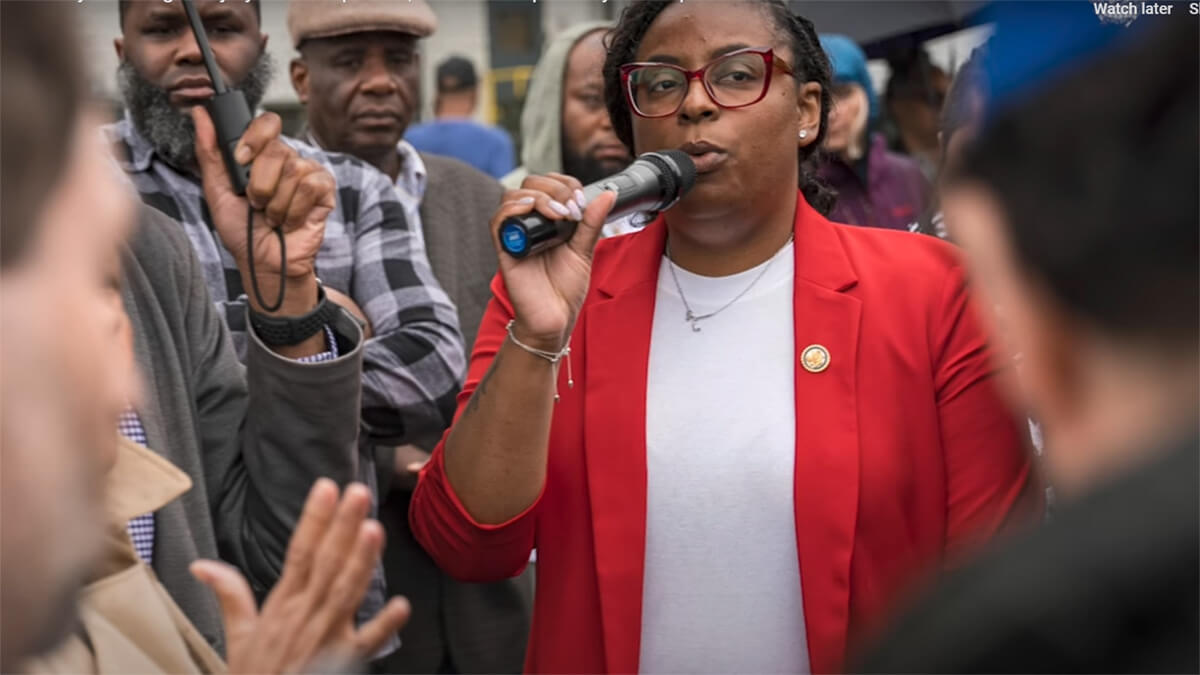U.S. Representative LaMonica McIver (D-NJ) has been indicted on charges that could lead to up to 17 years in federal prison. The indictment, which was returned by a federal grand jury in Newark, stems from a May 9 altercation at Delaney Hall, an Immigration and Customs Enforcement (ICE) detention facility. The incident involved McIver physically interfering with federal agents during an attempted arrest.
The U.S. Attorney for the District of New Jersey, Alina Habba, made it clear in her statement that while individuals can express their views on government policies, it must not come at the expense of endangering law enforcement personnel. Habba emphasized the constitutional duty to protect federal partners and the communities they serve.
On the day of the confrontation, McIver, along with other Democratic representatives from New Jersey, Bonnie Watson Coleman, and Robert Menendez, were on a congressional oversight visit to the detention center. Their visit coincided with a protest by open borders activists outside the facility. Newark Mayor Ras Baraka also arrived on the scene and was initially granted access to a secure area. However, federal officers later informed him that his authorization to remain was revoked and he faced arrest if he did not comply with orders to leave.
As officers moved to arrest Mayor Baraka, McIver intervened, positioning herself between the officers and the mayor. The Department of Justice (DOJ) alleges that McIver and others formed a barrier around Baraka, attempting to prevent the arrest, escalating the situation. When officers tried to handcuff Baraka, McIver is accused of not only obstructing them but also making physical contact with at least two officers, including using her forearm to slam into one officer and grabbing another in an attempt to restrain him.
Further details of the indictment reveal McIver's additional actions to physically block the arrest, including wrapping her arms around the mayor and striking another officer with her forearms. The charges against her include forcibly impeding federal officers and physically obstructing a lawful arrest.
Social media posts from both Homeland Security and US Attorney Habba corroborate the narrative of the indictment, with video evidence and official statements about the charges. The DOJ has not specified whether Mayor Baraka was ultimately arrested or if any other individuals present will face charges.
As the case unfolds, no trial date has been set, and Representative McIver has not provided a public statement regarding the indictment. The political and legal implications of this incident will be closely monitored as more details emerge.





